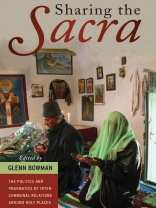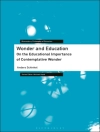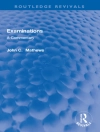“Shared” sites, where members of distinct, or factionally opposed, religious communities interact—or fail to interact—is the focus of this volume. Chapters based on fieldwork from such diverse sites as India, Nepal, Sri Lanka, China, Turkey, Morocco, Tunisia, and Vietnam demonstrate how sharing and tolerance are both more complex and multifaceted than they are often recognized to be. By including both historical processes (the development of Chinese funerals in late imperial Beijing or the refashioning of memorial commemoration in the wake of the Vietnam war) and particular events (the visit of Pope John Paul II to shared shrines in Sri Lanka or the Al-Qaeda bombing of an ancient Jewish synagogue on the Island of Djerba in Tunisia), the volume demonstrates the importance of understanding the wider contexts within which social interactions take place and shows that tolerance and intercommunalism are simultaneously possible and perpetually under threat.
Mục lục
Acknowledgements
List of Figures and Tables
Introduction: Sharing the Sacra
Glenn Bowman
Chapter 1. Combining practices and beliefs: Muslim pilgrims at Marian shrines
Dionigi Albera
Chapter 2. Everybody’s Baba: Making Space for the Other
Anna Bigelow
Chapter 3. Chthonian Spirits and Shared Shrines: The Dynamics of Place among Christians and Muslims in Anatolia
Maria Couroucli
Chapter 4. The work of mending: How Pharping people manage an exclusivist response to the procession of Vajrayoginī
Will Tuladhar-Douglas
Chapter 5. Efficacy, not Confessionality: On Ritual Polytropy in China
Adam Yuet Chau
Chapter 6. Saints, Sites and Religious Accommodation in Sri Lanka
Rohan Bastin
Chapter 7. The Ghriba in the Island of Jerba (or Djerba)or the re-invention of a shared shrine as a metonym for a multicultural Tunisia
Dora Carpenter-Latiri
Chapter 8. “Sacred Week”: Re-Experiencing Jewish-Muslim Co-existence in Urban Moroccan Space
Aomar Boum
Chapter 9. New Ancestral Shrines after the Cold War
Heonik Kwon
Contributors
Giới thiệu về tác giả
Glenn Bowman is Director of Research at School of Anthropology and Conservation the University of Kent where he is also Programme Convenor for BA Liberal Arts. He has done extensive field research on Jerusalem pilgrimages as well as on intercommunal shrine practices in the Middle East and the Balkans. In addition to this research on holy places he has worked in Jerusalem and the West Bank on issues of nationalism and resistance for nearly thirty years and has carried out fieldwork in the former Yugoslavia on political mobilization and the politics of contemporary art.












